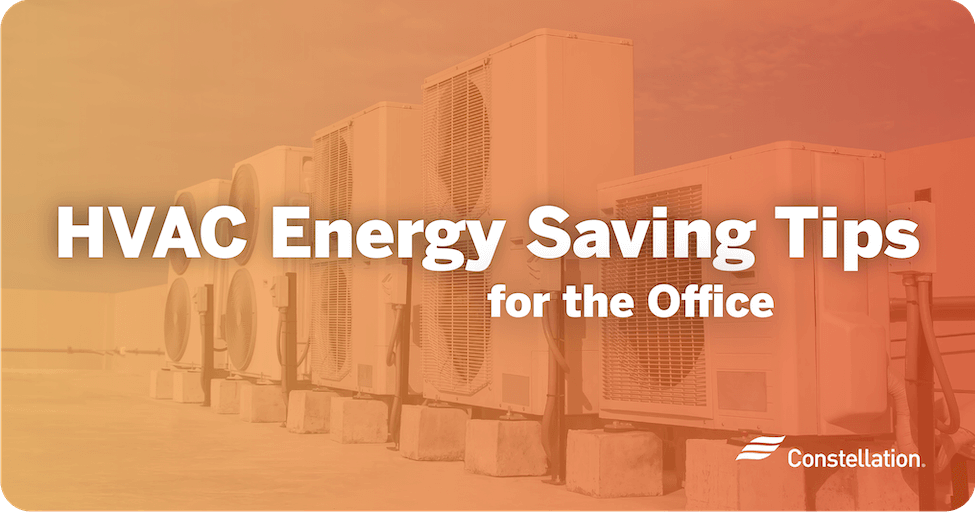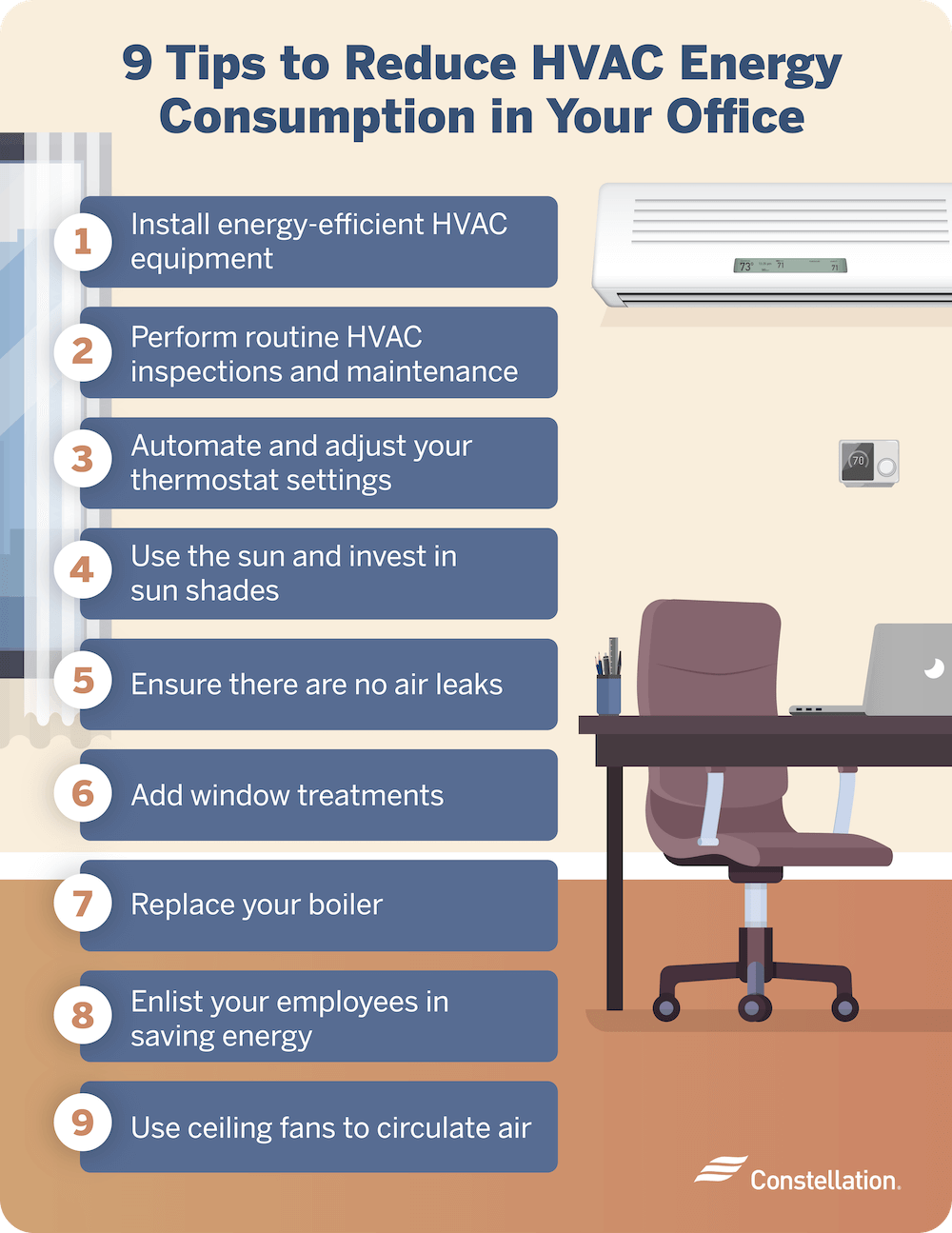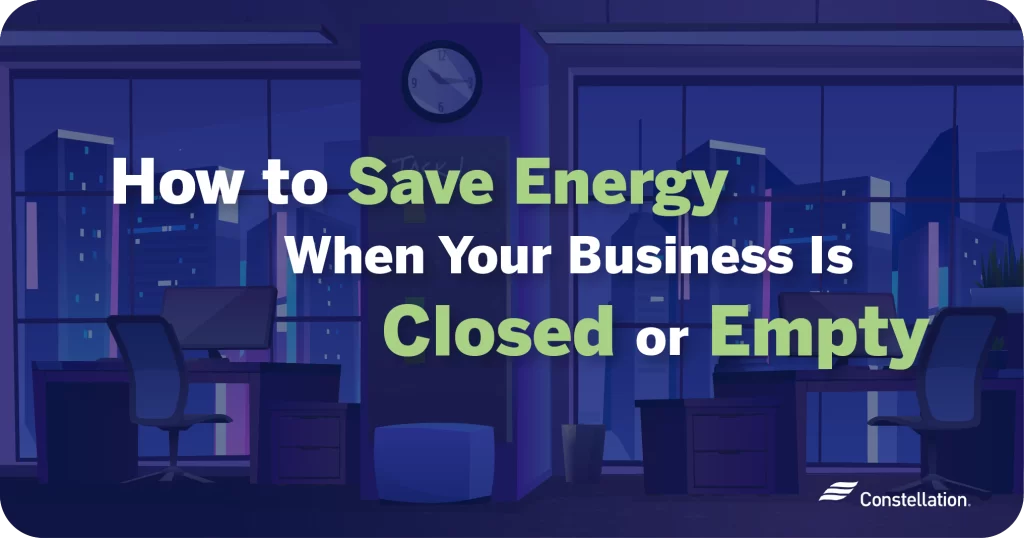
- Category:
Small Business Energy Savings -
Last updated:
March 27, 2025
HVAC Energy Saving Tips for the Office
Office HVAC energy saving goes straight to your bottom line. Yet, maintaining healthy air quality and a comfortable temperature in your place of work is vital to employee well being and productivity.
That said, if you don’t manage your HVAC systems for efficiency, you could be running up your costs unnecessarily. Depending on your climate, you may need year round cooling and some high heat months can drive usage even higher.
How to improve your office building’s energy efficiency is a topic that is getting more attention as companies juggle higher energy prices. Thinking about office HVAC energy consumption and ways to be more efficient top many managers’ lists.
Here we cover the best tips for reducing HVAC energy consumption in your office. You don’t have to give up a comfortable environment for energy savings, if you put just a bit of thought and effort into efficiency.
How much energy do HVAC systems use in office buildings?
Before you can think about how to reduce your small business’s HVAC energy consumption, it helps to understand how you are using energy today and how it impacts your budget.
HVAC consumes a large percentage of the energy used in a typical office; it’s the largest single energy use in a typical commercial building. Office buildings consume more electricity than other types of commercial buildings, according to a 2018 EIA survey. Heat accounted for 32% of energy usage, with air conditioning accounting for 9% and ventilation for 11%. Taken together, that was 52% of all office energy use.
If your business is in a region with temperature extremes, your actual small business energy consumption may be much higher.
Those numbers have changed in the aftermath of COVID, according to a preparatory study conducted in advance of redoing the 2018 study. Respondents reported these situations:
- Though fewer employees are present in buildings, the HVAC system is the same, using the same amount of energy.
- Some mentioned fewer computers, printers and phones are in use onsite due to remotely working staff.
- Some larger buildings have reduced HVAC in unoccupied floors, but that is not practical for smaller firms.
- Some companies have reduced costs by changing energy sources, investing in building automation systems or cutting operating hours.
- Others have made changes to their HVAC technology to increase outside airflow and added filters and air cleaners.
9 tips to reduce HVAC energy consumption in your office
These ideas will help you and your staff minimize HVAC energy usage without sacrificing comfort. New habits and small investments can rack up significant savings. Other benefits include better air quality, comfort and employee productivity. You also extend the lifespan of your equipment when you maintain it to operate in optimum condition. Many companies report improved overall operational efficiency that goes hand-in-hand with energy efficiency.
1. Install energy-efficient HVAC equipment
Your company may have a choice of systems and types of HVAC equipment. For most organizations, here are how the three most practical options stack up:
- Single-split HVAC systems: Relatively easy to install and inexpensive, these units can efficiently heat and cool smaller spaces. Because they don’t use ducts, you save on the installation expense (25% – 40% of HVAC energy is lost in ductwork).
- Multi-split HVAC systems: Such systems are similar to the single-split, but they have a larger outdoor unit and more indoor units spread throughout your structure. For larger spaces, they are an efficient option.
- Variable refrigerant flow (VRF) HVAC systems: If you have a large structure and need to control the temperature in different parts of the building, this is a good option. Because you optimize the temperature in each part of your building, this can also be an efficient option.
2. Perform routine HVAC inspections and maintenance
Keeping your HVAC system clean and running smoothly makes it more efficient. With proper care, you can extend the life of the various components. One of the easiest and least expensive things to do is to replace HVAC filters frequently. Regular filter replacement should be at the top of your HVAC maintenance checklist.
Invest in regular HVAC inspections and routine maintenance. It might make financial sense to get an HVAC protection plan that includes these services. Trained experts can help you with heating, plumbing and A/C repairs, and more.
If your system is nearing the end of its useful life, upgrade to a more efficient system. You may find that you quickly recoup the cost with a lower office heating and cooling bill.
3. Automate and adjust your thermostat settings
Building automation systems that optimize HVAC may be an option worth considering. You can also manually adjust your thermostat up or down instead of constantly keeping it at the ideal office temperature. A small change may not be noticeable to employees, yet you could see a big impact on your energy bill. Consider a programmable smart thermostat as an energy efficiency tool that can change temperatures throughout the day and reduce operations at night when no one is in the building.
4. Use the sun and invest in sun shades
Harness the heat of the sun to naturally warm your office spaces. Open shades to let the sun in on cold days. Close them off with insulated window treatments when the sun no longer shines in so that you can minimize heat loss. Those same insulated window treatments can block unwanted heat during the hottest times of the day in summer, reducing the workload of your HVAC system.
5. Ensure there are no air leaks
Insulate your building to close any leaks around windows, doors or light fixtures. With a well-insulated building, you can cut down the time your HVAC must work to cool or heat your office spaces. Insulation is an easy way to improve office HVAC energy savings and cut your office heating and cooling bill.
6. Add window treatments
Even well insulated windows will lose some heat or cool air. Add window treatments to reduce office HVAC energy consumption by controlling how much sunlight and heat gets into your office. Open and close them according to the season and the sun. Consider also adding these additional ways to control the heat of the sun.
- Window tints. These thin, plastic coatings absorb a large percentage of the sunlight and heat coming in to keep your office cooler. They also typically filter out UV rays that can fade and damage furniture.
- Reflective coating. These coatings are similar to tints. They reflect sunlight so that it doesn’t enter and heat the interior of your office.
- Smart blinds. These blinds connect to your smart hub so that you can program when they open and close. You might set them to close during the hours when the sun hits a specific window, then to open when the sun has moved on.
7. Replace your boiler
Your heating system accounts for the lion’s share of the energy your office consumes. Updating your boiler with a more efficient model will cut your heating costs every day it operates, delivering long term savings. The office HVAC energy savings with newer models is significant, making replacing an old unit worth considering, even if it might last a few more years.
8. Enlist your employees in saving energy
Ask your staff for office HVAC energy saving ideas. They may have some creative ideas for how to reduce HVAC energy consumption and for putting a stop to other ways your business is wasting energy. Getting them involved will build their support for turning the thermostat up or down a few degrees. It will also encourage them to commit to things like keeping doors closed and remembering to close blinds.
9. Use ceiling fans to circulate air
Run ceiling fans in your office to circulate air. In the winter, warm air rises, making the room feel cooler when you are standing on the floor. Having your fan rotate clockwise eliminates this issue. In the summer, change the direction to counter-clockwise so that you can feel the cooling breeze. In both cases, your HVAC will not have to run as much, reducing your electricity usage.
Maximize the efficiency of your office’s HVAC system
Choosing the right company to provide commercial HVAC services in Maryland is the first step in controlling energy usage. We work hard to earn your trust as your energy management and commercial HVAC services partner. We invite you to call for service or request an estimate for HVAC repairs in Maryland today.





